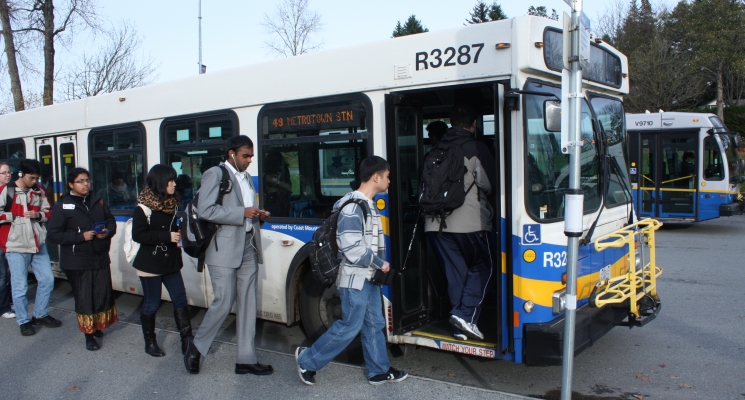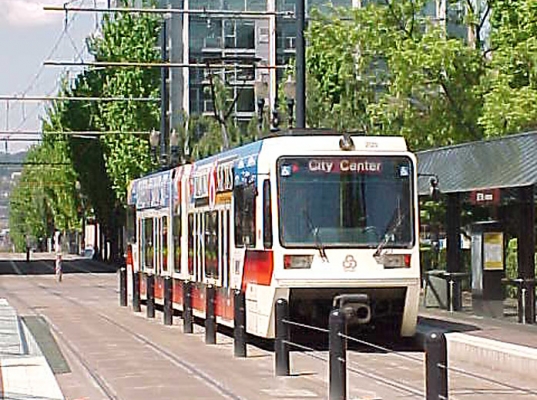NITC researchers have tested a method of collecting transportation behavior data using a smartphone app, with promising results.
The process could save transit agencies “hundreds of thousands of dollars,” says lead researcher Christopher Bone, and give them access to comprehensive, real-time data about their ridership, all without compromising passengers’ privacy.
Christopher Bone, Marc Schlossberg, Ken Kato, Jacob Bartruff and Seth Kenbeek of the University of Oregon designed a custom mobile application, which allows passengers to volunteer information about their travel habits, and recruited passengers to use it in a test case.
Their report, “Crowdsourcing the Collection of Transportation Behavior Data,” was released this month.
Participants were asked to use the app for three weeks on Lane Transit District’s EmX bus line located in the Eugene-Springfield area in western Oregon. Researchers placed sensors on the buses and at stops to detect when someone using the app was boarding. When a user came within range of a sensor, they...
Read more

